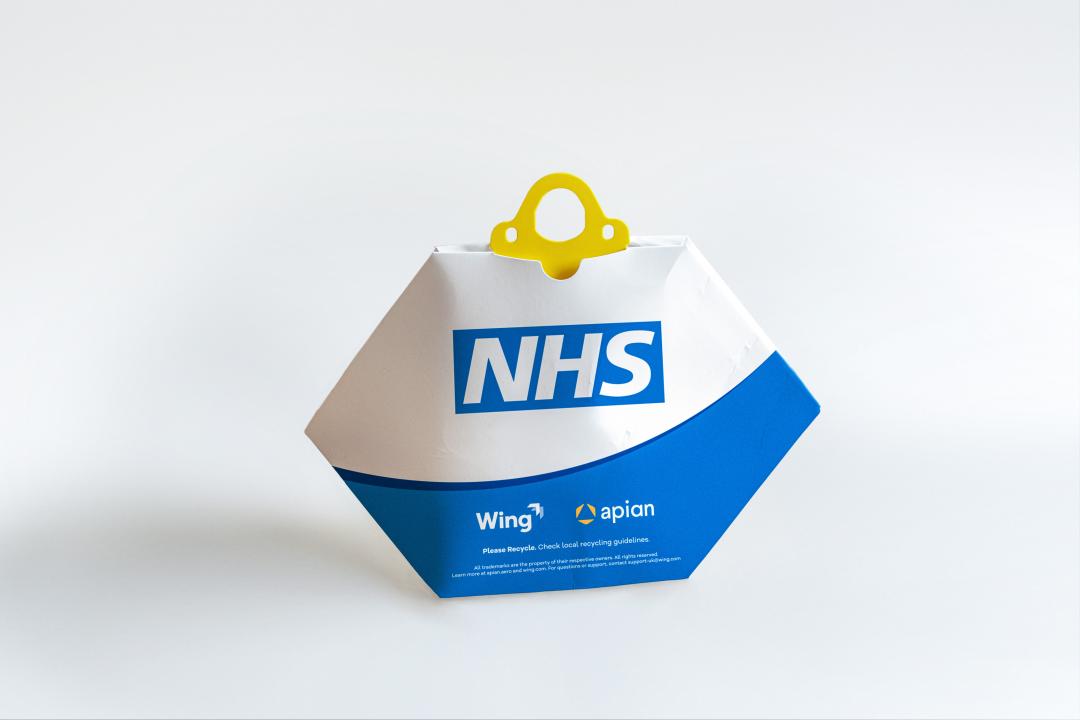In a landmark move for the capital, drones are set to begin deliveries of vital blood samples at Guy’s and St Thomas’ NHS Foundation Trust as London looks to speed up patient care while also caring for the environment.
Moving samples between Guy’s Hospital and the lab at St Thomas’ Hospital can sometimes take longer than 30 minutes, with the traditional courier service being via van or motorbike.
Local health chiefs believe this journey can be cut down to less than two minutes through the power of electric drones, in turn enabling faster analysis which allows NHS staff to decide if a patient should undergo surgery or be discharged in a more timely manner. The deliveries will be enabled by a partnership spanning four organisations:
- GSTT
- Apian
- Wing
- Civil Aviation Authority
The partnership
Wing is a global drone delivery company which forms part of the Google family, while Apian is a healthcare logistics organisation with its provenance routed in the NHS. Apian has previously worked on drone trials in rural parts of the UK, and both Apian and Wing have collaborated on a scheme of drone delivery in Dublin, Ireland.

The pilot is expected to start this autumn after the requisite approvals and oversight were given by the Civil Aviation Authority, which will regulate the six-month project.
Local leaders hope that success during the pilot phase could pave the way for more items to be delivered in this way at GSTT, as well as by other London NHS trusts. This particular trial will centre around delivering blood samples for patients undergoing surgery who are at high risk of complications from bleeding disorders.
Innovative approach
“The drone pilot combines two of our key priorities – providing the best possible patient care and improving sustainability,” said Professor Ian Abbs, CEO at GSTT. “We are proud to be the first Trust in London to trial this innovative approach to help speed up blood sample analysis for our most urgent cases.”
GSTT is expecting that, by switching the delivery of blood samples from vehicle to drone, they can harness significant environmental benefit through less carbon emissions and reduced traffic congestion. The trust highlights that lightweight commercial drones can reduce CO2e emissions by up to 99% compared to non-electric cars, while also reducing electricity consumption compared to electric delivery vans.
Howard Dawber, deputy mayor of London for business and growth, added: “This new service is a great example of how the innovation and vision of a London startup has brought much-needed investment from across the globe to tackle important health issues facing our city today – showing how London is leading the way in improving healthcare as we build a fairer London for all.”
Listen to the National Health Executive podcast to learn the 'truth' about drones in the NHS.
Image credit: Guy’s and St Thomas’ NHS Foundation Trust



















